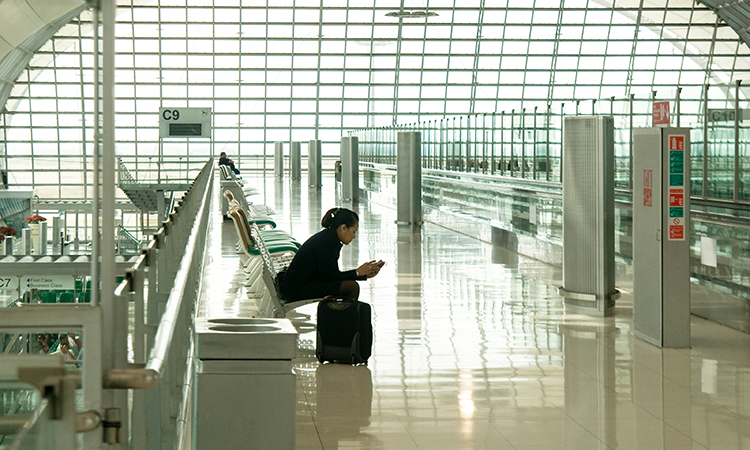ICAO Secretary General stresses negative impact of latest COVID-19 safety measures on air travel
- Like
- Digg
- Del
- Tumblr
- VKontakte
- Buffer
- Love This
- Odnoklassniki
- Meneame
- Blogger
- Amazon
- Yahoo Mail
- Gmail
- AOL
- Newsvine
- HackerNews
- Evernote
- MySpace
- Mail.ru
- Viadeo
- Line
- Comments
- Yummly
- SMS
- Viber
- Telegram
- Subscribe
- Skype
- Facebook Messenger
- Kakao
- LiveJournal
- Yammer
- Edgar
- Fintel
- Mix
- Instapaper
- Copy Link
Posted: 22 January 2021 | International Airport Review | No comments yet
With fresh travel restrictions and border closures being implemented across the globe, ICAO’s Secretary General has outlined that there are few signs of near-term relief ahead for travel and tourism markets in the continued face of COVID-19.


Speaking to the eight Virtual Meeting of the UN World Tourism Organization’s (UNWTO) Global Tourism Crisis Committee, the International Civil Aviation Organization’s (ICAO) Secretary General, Dr. Fang Liu, acknowledged that the latest measures to confront the most recent waves of COVID-19 transmission are weighing heavily on global travel and tourism.
She emphasised that there were few signs of near-term relief ahead for travel and tourism markets, given that the world is still faced with limited supplies of vaccines, and insufficient data on the transmission of the virus by persons that have been vaccinated.
Liu underscored that ICAO is collaborating with its states, partner agencies and the industry on the global vaccine distribution challenge, and to develop further guidance applicable to current and future pandemics.
ICAO’s Secretary General drew her colleagues’ attention to ICAO’s newly issued manual on ‘Testing and Cross Border Risk Management Measures‘, stressing that the multi-layered health measures it outlines may likely continue to be pursued by states in the medium- to long-term.
“Proper certification of vaccines may be required in the near future, but, in the meantime, the international acceptance of test results must be a key priority,” she noted. “Currently, there is no agreed-upon means to do so, country-to-country, on an irrefutable and fraud-resistant basis.”
When and where they are required, ICAO is also recommending that COVID-19 test results and vaccination certificates should be provided in a timely and reliable manner, allowing for the rapid facilitation of travellers while ensuring equity in access.
“Such solutions should also be respectful of privacy and personal data, adaptable to varying infrastructure and conditions, and financially reasonable for all concerned,” Liu underscored. “A number of different approaches are currently being developed, and it is essential that we work to ensure their effective interoperability.”
She further noted that ICAO is collaborating with the World Health Organization (WHO), the International Air Transport Association (IATA) and other travel sector stakeholders to standardise vaccination and testing certificates, thereby promoting mutual recognition, leading to the possible reduction of quarantine measures.
The technical solutions for both vaccination and a testing certificate could be built upon ICAO’s specifications for Visible Digital Seals (VDS), as already defined in ICAO Doc 9303 on ‘Machine Readable Travel Documents (MRTDs)’, to ensure globally interoperability and a secure, customer friendly approach.
“VDS-based testing certificates will be secure, trustworthy, privacy-protecting and interoperable, built on internationally recognised standards and specifications and tailored to the capabilities of existing infrastructure,” she said.
Liu concluded by underlining that international alignment on the acceptance of test results and vaccination certificates remains a key global objective, and the best way forward to the resumption of global travel and tourism.
Related topics
Aeronautical revenue, Airport crisis management, COVID-19, Passenger experience and seamless travel, Passenger volumes, Regulation and Legislation, Safety, Tourism
Related organisations
International Air Transport Association (IATA), International Civil Aviation Organization (ICAO), UN World Tourism Organization (UNWTO), World Health Organization (WHO)


















